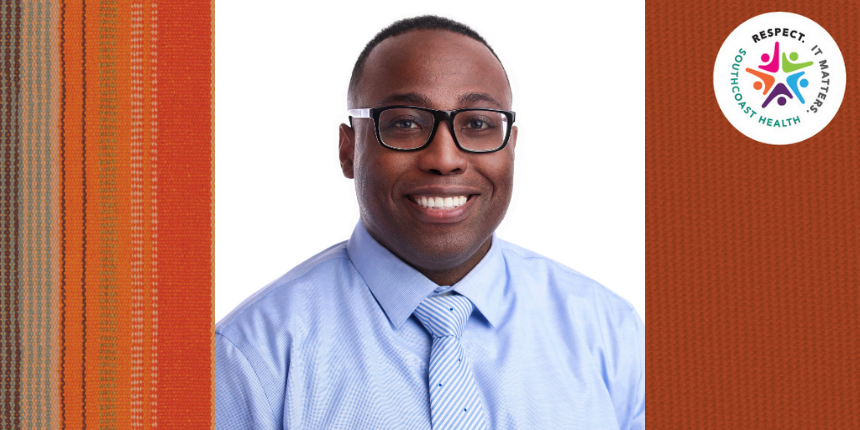Celebrating Black History Month: Dr. Petit Me

Jean Claude Petit Me, DO Shares the Importance of Black History Month
Dr. Jean Claude Petit Me is a Trauma Surgeon at St. Luke’s Hospital specializing in acute care surgery, trauma and surgical critical care. He has a passion for helping others. Therefore, Dr. Petit Me knew this was the career for him when he fell in love with the hospital environment and culture while volunteering in college. What he enjoyed most throughout this experience was being part of a strong team. A unit of people all working together toward the same goals, regardless of their positions and titles.
Dr. Petit Me was born in Port-au-Prince, Haiti, the first country to be founded by former slaves after gaining its independence from France. Growing up in Haiti, the importance of education was instilled in him. His family believed it to be the cornerstone of a successful future. In 1991, due to civil unrest in Haiti, Dr. Petit Me relocated to the United States.
The Historical Meaning of Black History Month
Based on his unique experiences and background, the meaning of Black History Month to Dr. Petit Me has continuously evolved. In the past, he applauded the yearly commitment dedicated to the celebration of historical black leaders and events. Especially after his own periodic exposure to discrimination in the United States. He sees this celebration as a great opportunity to help educate and unify the nation.
In recent years he has expanded on that view. As a result, he sees the significance of furthering inclusion throughout Black History Month as it lessens division. Dr. Petit Me believes that it is important to understand and learn from the past. Black History Month is a time for us to reflect on both past achievements and failures in the journey towards unity throughout American and World History.
“Race is a term borne out of intolerance, prejudice and hatred around the Middle Ages that continually leads to division and separatism even today,” Dr. Petit Me says. “Race is not part of our biology, but part of our culture.”
He said that in 1950, with ongoing segregation and discrimination prevalent in America, a statement was issued by UNESCO (United Nations Educational, Scientific and Cultural Organization) asserting that all humans belong to the same species and that race was not a biological reality, but a myth.
“Since that time there have been multiple studies of genomic evidence supporting the origins of the modern human out of Africa within the past 200,000 years,” Dr. Petit Me says. “These discoveries prove that there is truly only one race that corresponds to the evolutionary origin as humans, and there is no difference based on skin pigmentation.”
Leaning Toward a Future Without Racism
Dr. Petit Me hopes that in the future our nation and the world can get to a point where racism is no longer an issue and the character of a person will be the defining factor in their judgment. He believes that the first step toward this goal is education and open conversations, and he encourages others to learn about historic leaders and major events in history that can explain our present reality.
New to the Southcoast area, Dr. Petit Me moved here with his wife and daughter in July 2020 after completing his fellowship. With a drive to help others, Dr. Petit Me hopes to participate in medical missions and to be an active member of the community. One of his long-term goals is to volunteer in his beloved country of Haiti in any capacity. In addition to assisting as a surgeon, he hopes to help fight poverty, increase health care access, eliminate hunger, create housing, and to help with other key issues to help lift it from being the poorest country in the Western Hemisphere.
To learn more about how Southcoast Health honors Black History Month and employee profiles, visit our Diversity, Equity & Inclusion page.

 Matt Guthrie
Matt Guthrie 